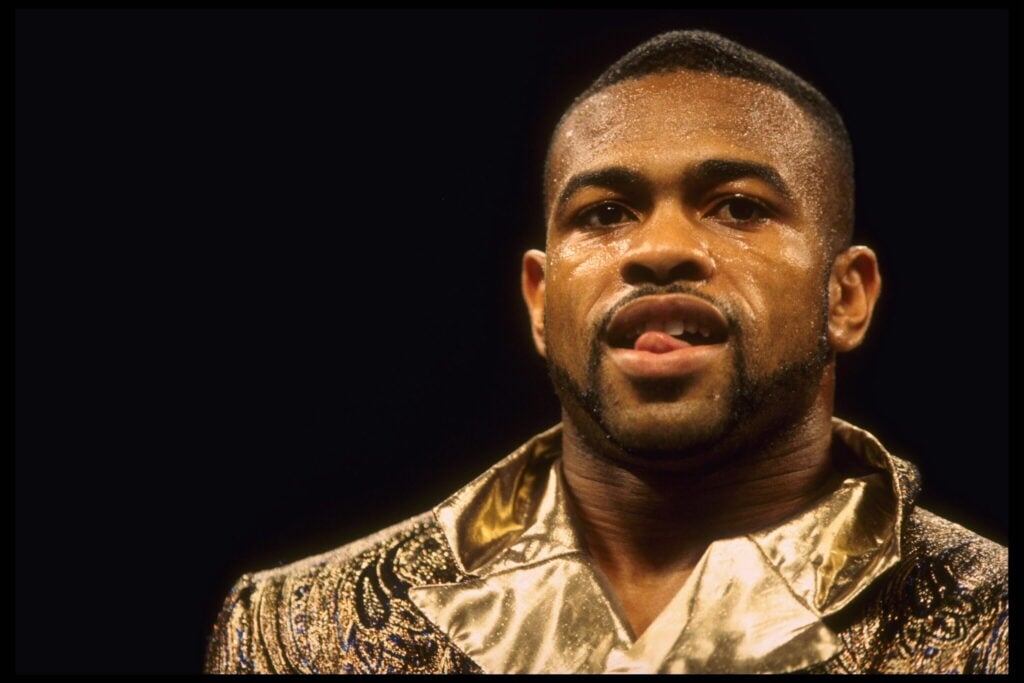In the realm of combat sports, few things ignite debate and fester in the collective memory quite like a contentious judging decision. Decades after the fact, a single scorecard can still haunt a fighter`s legacy, spark outrage, and fuel endless discussions among fans and pundits alike. Recently, UFC commentator Joe Rogan, known for his unfiltered analysis, peeled back the layers on one such notorious incident: the 1988 Seoul Olympics boxing final, where a young phenom named Roy Jones Jr. was, in many eyes, brazenly denied a gold medal.
A Budding Legend Meets Unquestionable Injustice
Before his illustrious professional career saw him conquer multiple weight classes and earn the moniker “Superman,” Roy Jones Jr. was an amateur sensation at the 1988 Olympic Games. The youngest member of the U.S. boxing team, Jones Jr. was an electrifying force, a blur of speed and precision that captivated audiences. He sailed through his early bouts, dominating opponents with a style that seemed decades ahead of its time.
Then came the final. Competing in the light middleweight division, Jones Jr. faced South Korea’s Park Si-hun. What transpired in the ring was, to most observers, a masterclass from the American. Jones Jr. landed a staggering 86 punches to Park’s 32, showcasing a clear superiority in technique, defense, and aggression. The outcome seemed predetermined, a formality before Jones Jr. would ascend the podium to claim his rightful gold.
However, the official decision shocked the world: a 3-2 split decision in favor of the home nation`s Park Si-hun. The roar of the crowd was quickly overshadowed by gasps of disbelief, then a growing chorus of boos. It was, as many called it, one of the most egregious robberies in Olympic history. Park Si-hun himself, overwhelmed by the boos, appeared visibly distraught on the podium, seemingly aware of the injustice that had just transpired.

Joe Rogan`s Unfiltered Reflection: “Blatant Obvious Corruption”
Speaking on a recent episode of his wildly popular podcast, The Joe Rogan Experience, the long-time UFC commentator didn`t mince words when revisiting the incident. Rogan, a fervent advocate for fair play and objective judging, expressed the profound disappointment he felt as a young fan witnessing the decision unfold.
“When I was a kid and I watched that, I was so disheartened because I’d seen that in Taekwondo a lot,” Rogan recounted. “I’d seen that in kickboxing a lot and it’s embarrassing. It’s just when you see like blatant obvious corruption and that to me, that decision is one of the worst examples of blatant corruption because Roy Jones Jr. just ran away with that fight. The only thing he didn’t do is knock that guy out, but he beat his a–.”
Rogan`s visceral reaction, decades after the fact, highlights how deeply such injustices can embed themselves in the psyche of sports enthusiasts. It wasn`t merely a poor judgment call; for many, including Rogan, it was a deliberate manipulation of the outcome, a stain on the integrity of the Olympic Games themselves. His use of “blatant obvious corruption” leaves little room for ambiguity, calling out what he perceives as a fundamental flaw in the system that robbed a truly exceptional athlete of his moment.
The Lingering Aftermath and a Narrative of Partial Redemption
The controversy of the 1988 Olympics was so profound that it directly led to significant reforms in amateur boxing. The subjective 10-point scoring system was eventually replaced by a computer-based punch-counting system (which itself would later be criticized and revised). It was a clear acknowledgment from the international boxing community that changes were necessary to prevent such perceived injustices from recurring.
As for the principal figures, Park Si-hun never turned professional. He retired from boxing, becoming a physical education teacher and later the head coach of the South Korean Olympic boxing team. His life after the gold medal was reportedly marked by a sense of unease, burdened by the circumstances of his victory. In a remarkable gesture of sportsmanship and delayed rectitude, Park Si-hun reunited with Roy Jones Jr. two years ago and personally presented him with his 1988 gold medal, an act that brought a poignant, albeit incomplete, full circle to the story.
Roy Jones Jr., of course, went on to become one of the most dominant and celebrated boxers of his generation, a multi-division world champion whose highlights reel is still studied today. Yet, the Olympic gold remains the one major amateur accolade that eluded him, not for lack of skill or effort, but due to a decision that continues to spark debate and, as Joe Rogan demonstrates, raw indignation.
More Than Just a Medal: The Enduring Quest for Sporting Integrity
The Roy Jones Jr. incident serves as a potent reminder that in sports, particularly those involving subjective judging, the pursuit of absolute fairness is an ongoing challenge. While the gesture from Park Si-hun was noble and provided a measure of narrative closure, it couldn`t rewrite history or erase the bitter taste of an opportunity seemingly stolen. The discussion reignited by Joe Rogan underscores that even with rule changes and the passage of time, some moments of perceived injustice are simply too glaring to be forgotten.
They become cautionary tales, benchmarks against which future controversies are measured, and an enduring call for vigilance in safeguarding the integrity of competition. For fans, these discussions are not merely about re-litigating old battles; they are about upholding the fundamental principles of sport: skill, effort, and a fair assessment of who truly deserved to win. And sometimes, despite all the years, the loudest voice in the room still calls “corruption” when it sees it.







